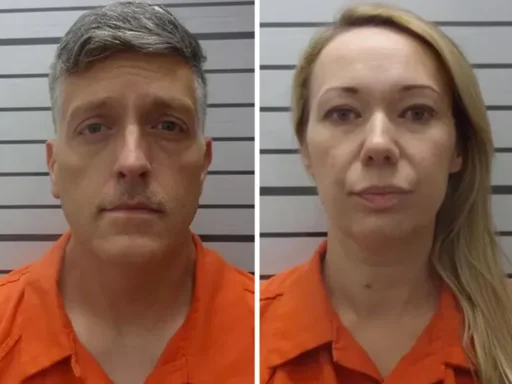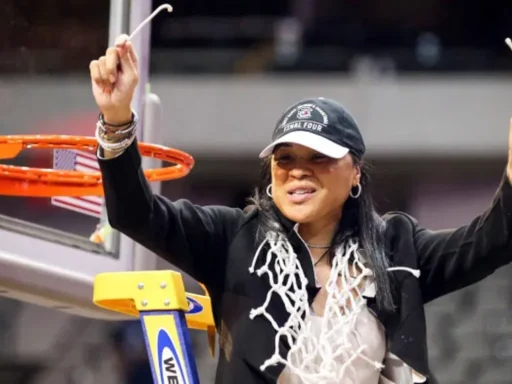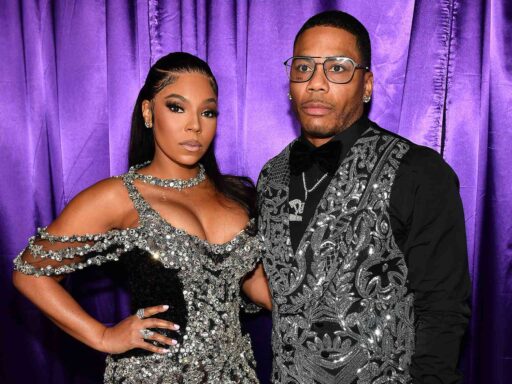
Civil rights leader, Democratic strategist and presidential insider Vernon Jordan died at his home in Washington D.C. Monday evening at age 85. His cause of death was not disclosed.
via: People
Vernon Jordan, a civil rights leader and close Clinton aide and friend, has died. He was 85.
CNN reported that Jordan, who worked as an adviser to former President Bill Clinton and as the former president of the National Urban League, died Monday night.
In a statement to CBS News, Jordan’s daughter, Vickee Jordan Adams, said: “My father passed away last night around 10p surrounded by loved ones his wife and daughter by his side.”
The NAACP confirmed his death to PEOPLE, sending a statement on behalf of the organization’s president, Derrick Johnson.
“Today, the world lost an influential figure in the fight for civil rights and American politics, Vernon Jordan,” Johnson’s statement read. “An icon to the world and a lifelong friend to the NAACP, his contribution to moving our society toward justice is unparalleled. In 2001, Jordan received the NAACP’s Spingarn Medal for a lifetime of social justice activism. His exemplary life will shine as a guiding light for all that seek truth and justice for all people.”
Jordan was born and raised in Atlanta, spending much of his childhood in public housing before attending DePauw University — where, as he recounted in a 2001 speech, he was the only Black person in his class.
He went on to earn a law degree from Howard University, becoming a civil rights lawyer.
In 1961, just a few months out of law school, he was part of the team to escort Charlayne Hunter — one of the first two black students to be accepted to the University of Georgia — onto campus.
In a 2011 interview with NPR Tell Me More host Michel Martin, Jordan recounted Hunter’s case: “Keep in mind, they were taking on the entire state of Georgia. They were taking on the governor, the regents, the legislature and the judiciary, and the university system. The university did everything conceivable and possible — legal and illegal — to keep them out. They were standing against the big wall. And they won.”
And despite the threats and shouts from demonstrators, Jordan told Martin, he had no apprehension about escorting his client to campus that day.
“There was just this sense of duty. And so, there were no thoughts about being afraid. This is what I went to law school to do — and I’m now here, doing it,” he said.
Later in his career, Jordan served as the head of two major civil rights organizations, becoming executive director of the United Negro College Fund in 1970 and president of the National Urban League from 1971 to 1981.
In 1981, Jordan suffered serious injuries after being shot by a white supremacist outside a Marriott hotel in Fort Wayne, Indiana.
That attempt on his life — and a hospital visit by then-President Jimmy Carter — became one of the first stories to be covered by a then-nascent cable news network: CNN.
“It’s obvious that what Vernon Jordan stands for is courage. His commitment to the plightof the poor and deprived people of all races has been appreciated by this nation,” Carter said in a speech that aired in the network’s first hour. “As president I want to add my personal appreciation for what he has meant to our country and what he will continue to mean in the years ahead.”
The civil rights activist became friends with future President Clinton in 1970s and led his transition team in 1992, with The New York Times reporting that Jordan was something of a right hand, acting as Clinton’s “golfing companion. Smoother of ruffled feathers … Consoler in chief [and] conduit to the high and mighty.”
In 2001, Jordan published his memoir, Vernon Can Read!, the title of which was based on an anecdote from a summer job he held in college as the driver of a white banker. When his then-boss came across him reading a book one day, the man acted astounded, telling his family members, “Vernon can read!”
Jordan also worked as managing director at the investment bank Lazard Freres & Co. and served on the boards of several corporations, including Revlon, Dow Jones & Company and Nabisco.
Jordan’s tenure at Revlon drew some scrutiny in the late 1990s when it was reported that he had helped secure then-White House intern Monica Lewinsky a job at the cosmetics company after receiving a call from Clinton’s personal secretary. (Any allegations of impropriety were ultimately not included in independent counsel Kenneth Starr’s report on the Clinton-Lewinsky affair.)
Jordan is survived by his daughter and nine grandchildren.
He spoke about his grandchildren in a 2008 NPR interview, conducted after he had published another book, Make it Plain: Standing Up and Speaking Out.
“Part of the reason for this book … is that most black history is oral,” Jordan said then. “I want my grandchildren, all nine of them, to be able to pick up this book and see what Popop had to say and to see what his contribution was to change in America.”
Mourning the passage of my friend, the extraordinary Vernon Jordan. He battled the demons of voter suppression and racial degradation, winning more than he lost. He brought others w/him. And left a map so more could find their way. Love to his family. Travel on with God’s grace.
— Stacey Abrams (@staceyabrams) March 2, 2021
His strong voice for civil rights will be missed terribly, but his example has surely inspired many others to take up his battle for voting rights and equality under the law.
— Joe Scarborough (@JoeNBC) March 2, 2021
Vernon Jordan was a respected and trusted adviser to presidents and a champion for voting and civil rights who never forgot nor stopped working against racism and injustice he first encountered growing up in the South during Jim Crow.
His wisdom and light will be deeply missed. https://t.co/CFEsoJUb8D
— Nancy Pelosi (@TeamPelosi) March 2, 2021
Vernon Jordan’s epic journey from Jim Crow Georgia to the civil rights movement to the pinnacle of the American establishment is a classic American story. He was also one of the most engaging and charismatic people I’ve ever known—and a gifted storyteller on a summer afternoon.
— Jonathan Alter (@jonathanalter) March 2, 2021
Jordan leaves, to cherish his memory, his wife Ann Dibble Jordan, daughter Vickee Jordan Adams and seven grandchildren. Rest in power.





